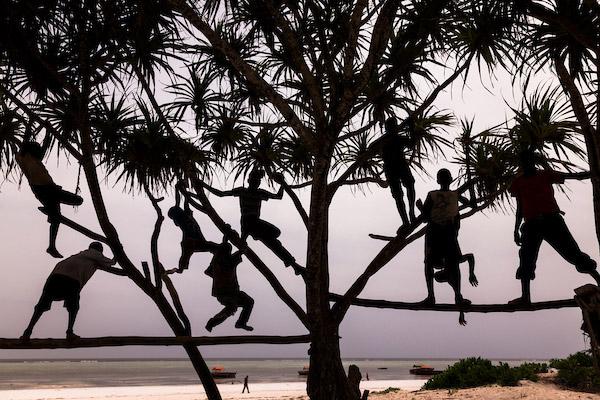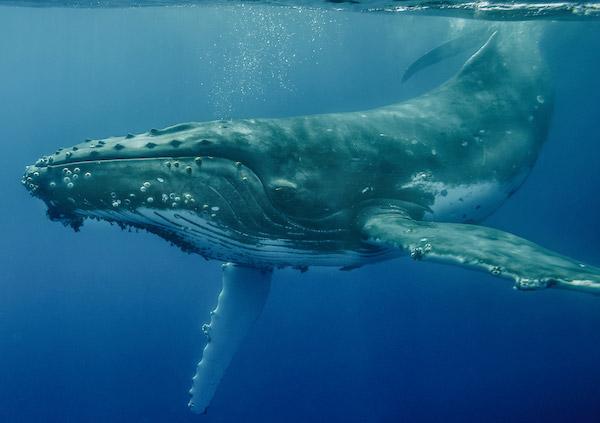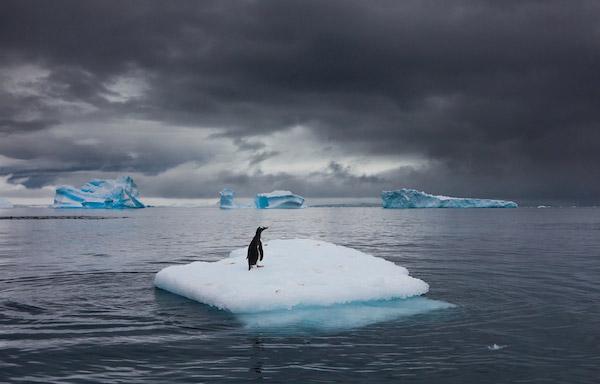40 years of documenting Earth’s beauty
A lone gentoo penguin peers out over the water and melting ice of Antarctica. Art Wolfe considers himself an advocate for conservation and seeks to capture the impacts of climate change in his work.
After 40 years of traveling the world and capturing natural wonders, photojournalist Art Wolfe has published a stunning new book, "The Earth is My Witness."
The volume features an expansive photo collection that documents climate change and the world’s most threatened traditional cultures.
Wolfe says his book is “a testament to what I've seen and what I've experienced on a global scale [for] over 40 years. … I photograph abstracts in major cities, I photograph indigenous cultures, I photograph wildlife and landscapes. Virtually everything is of interest to me.”
The phrase “Earth Is my witness” is based on a Buddhist story, Wolfe notes. “I think it means the Earth is watching, and is always watching, what we as humans are doing. I think it’s very prophetic in today's world.”
As a young man, Wolfe says, he had two great loves: nature and art. He would go out into the forest with a bird book or a mammal book or a tree book — “I was a naturalist without even knowing the word ‘naturalist,’” he says — and study and memorize what he saw. At the same time, his mother took a correspondence course in drawing and painting, and Wolfe set up his own little easel next to hers.
“I must have been around five, six and seven during that period of time, so, it was ingrained early on, both art and nature,” Wolfe says.
During college, Wolfe studied fine art and began to photograph the things he was learning about composition and aesthetics. He describes living parallel lives: during the week, studying art, and on weekends, pursuing nature and climbing mountains.
“Suddenly, the camera became part of the journey, initially just to capture the scenes to show my family and friends where I was gone on weekends,” he explains. “But they responded, and I was responding at the same time, learning composition and painting and [applying that] to photos.”

Wolfe says his work encompasses both art and journalism. He loves nothing more than traveling to remote places and documenting some of the ancient traditions that he believes will vanish before “the inevitable creep of Western civilization.”
“I look at that as a purely journalistic style and drive, but I'm going to also do it in as eloquent and artistic way I can,” he says. “I'm not simply aiming the camera at a subject. I'm framing the shot. I'm thinking about the backdrop. I'm trying to capture the subject in a way that has an emotional connection to the audience. If I can't make that emotional connection to the audience, they're going to move on.”
At the same time, Wolfe says, the notion that photography accurately captures “reality” is “simply not true.”
“You, as a photographer, instantly start putting your own slant on a photo,” he says. “And journalists, who have to abide by the most stringent ethics, still have powerful ways of telling their stories, and they may include or exclude things that distract from what they're trying to tell. They’re altering their reality by what they choose to include or not. Whether they use a wide angle or whether they use a telephoto lens to compress the scene, they are making choices that change the actual reality of the situation, and their goal is still making some sort of aesthetically strong, graphic image out of the subject.”

Wolfe is a strong advocate of nature conservation. He has supported a long list of environmental groups with his photos because he “believe[s] wholeheartedly that all those groups are what we need now, even more than ever.”
“If my photos can support them and help them or bring greater exposure to their stories, I feel honored and obligated,” he says. “I think the word obligated is the most appropriate word to use.”
This article is based on an interview that aired on PRI’s Living on Earth with Steve Curwood.
